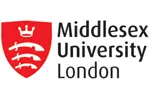About PGCE Chemistry with Science (QTS), PGCE - at Middlesex University
Overview
Chemistry is a fascinating subject which can engage and inspire children. It feeds their natural curiosity and supports them in developing their understanding of the natural world. Science teachers are in great demand and this course appeals to graduates who are passionate about chemistry but want to develop the skills and understanding to teach science across the curriculum.
This one-year full-time course, enables you to meet the national standards for the award of qualified teacher status (QTS).
Why study PGCE Science with Chemistry (QTS) at Middlesex University?
Through this PGCE, you will learn to operate as a critically reflective chemistry teacher in a secondary school setting and develop competence across the entire range of the National Curriculum Programme of Study for Science. Specialising in chemistry, you will learn to integrate theory and practice, as part of a stimulating and engaging ambitious curriculum. Our PGCE Science with Chemistry course has fully embedded the Core Content Framework for Initial Teacher Training. You will have the opportunity to gain the knowledge and skills required to fully meet the Teachers' Standards by the end of your training.
We have a range of specialist science and teaching facilities, providing you with a solid foundation on which to develop your skills and experience. We have excellent relationships with schools in and outside London. During your studies, you will undertake teaching placements in at least two secondary schools and have the chance to acquire skills in the application of established pedagogical approaches and new technologies in teaching and learning science. We work closely with our trusted partnership schools to provide a variety of opportunities and experts from our partner schools are on hand to offer invaluable mentoring and support. We are proud of the excellent and comprehensive level of support that we offer our trainee science teachers in every aspect of our course.
The course gives you a strong understanding of how and why to teach chemistry in secondary schools whilst also enabling you to appreciate the unique aspects of other science specialisms in order to develop your confidence in teaching across the science curriculum. Middlesex University has dedicated subject tutors who have established strong relations with external specialists and partnership schools who will deliver contemporary and subject specific training sessions.
The Science with Chemistry PGCE Programme at Middlesex University has been developed with input from partnership schools. The curriculum ensures that you develop a deep understanding of science pedagogy. Key principles underpinning the curriculum design are:
Careful sequencing of curriculum content, informed by up to date research informed practice and covering the national Core Content Framework for teacher training as a minimum expectation.
Exploration of current debates and key issues relating to Science teaching and learning in secondary schools.
Developing knowledge and understanding of progression of key concepts in Science, including common misconceptions and an appreciation of the complexity linked to teaching abstract concepts.
Opportunities to practice and develop the skills of effective planning Science lessons.
A strong focus on purposeful practical work in Science and the opportunity to practice practical work in University and school-based settings.
Consolidation of learning and opportunities to put theory into practice, combined with regular and purposeful feedback.
Promoting Science and cultural capital with our links to cultural and educational establishments.
Modelling effective instruction and delivery in Science, providing repeated opportunities for critical reflection of practice. Opportunities to consider and practice modelling and using models in Science teaching.
Expert input into the programme; including sessions led by the Association for Science Education, Institute of Physics, Royal Society of Chemistry.
Links to professional studies and the opportunity to explore generic pedagogies and learning theories through a Science teaching and learning lens; including literacy, numeracy, special educational needs, metacognition, behaviour and adaptive teaching.


